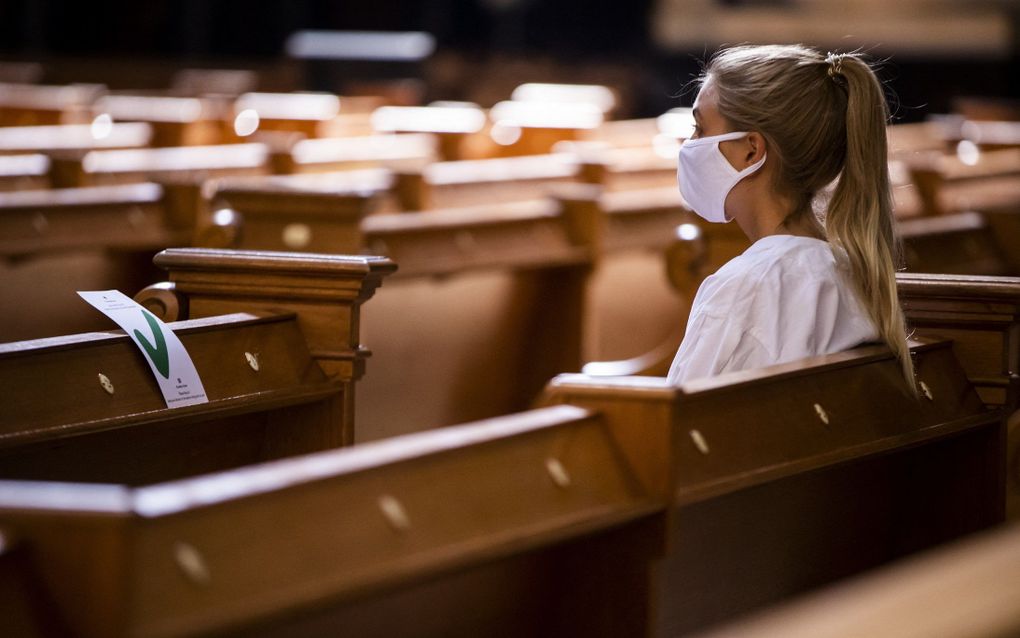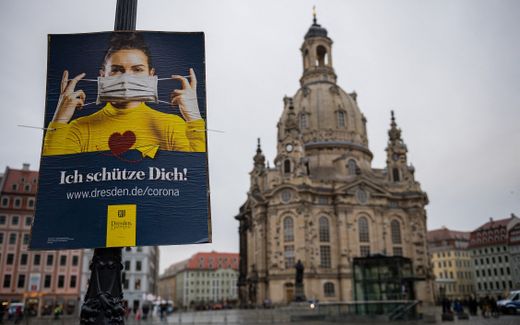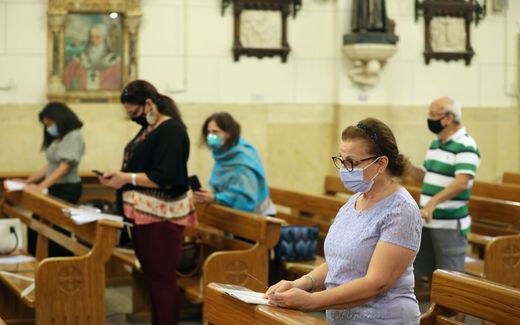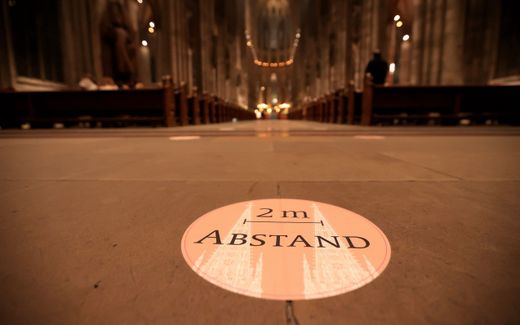Corona pandemic led believers to prayer

A worshipper wearing a protective face mask while attending a Sunday service at the Berliner Dom cathedral in Berlin amid the Covid-19 coronavirus pandemic. Photo AFP, Odd Andersen
Central Europe
Most religious people prayed more during the Corona pandemic. This is not only true for (Evangelical) Christians, but also for Muslims and Buddhists.
That is the result of German research in the Religion Monitor 2023 published by the Bertelsmann Foundation on Thursday. This is reported by the press agency Idea.
Accordingly, Evangelical Free Churches prayed or meditated somewhat or significantly more (31 per cent) than before. It was 24 per cent for Muslims and 43 per cent for Buddhists.
This proportion was significantly lower among Orthodox Christians (15 per cent), Protestants (10 per cent) and Catholics (9 per cent).
Although people prayed more, the majority of the population put more hope in family relations, the research shows. According to Katholisch.de, that is the main conclusion of the research.
Non-religious
For the Religion Monitor, the Infas Institute for Applied Social Sciences (Bonn) surveyed almost 4,400 Germans and another 6,300 citizens in the Netherlands, France, Great Britain, Spain, Poland and the USA last summer.

Across countries, about 40 per cent of the highly religious have prayed or meditated more often than before during the pandemic. Among the non-religious it was only 3 per cent. The United States had the highest proportion of those who expanded their prayer and meditation practice during the coronavirus crisis compared to any other country at 34 per cent.
The study also found that around a third (34 percent) of German respondents thought more about the meaning of life during the pandemic than before.
Social power
As the survey in Germany also shows, three quarters of those surveyed said they had done more to help others during the pandemic. Religious people were disproportionately represented in this group.

The expert at the Bertelsmann Foundation, Yasemin El-Menouar, writes: “Belief obviously also generates social power; it not only helps to get through difficult times individually, but also strengthens commitment to others.”
Crisis management
Overall, religion played a subordinate role in the German population in overcoming the Corona crisis. Citizens saw family (90 per cent), science (85 per cent) and neighbourhood (74 per cent) as helpful. For almost every second person it was politics (48 percent). Religion comes last with 29 per cent.
Related Articles







